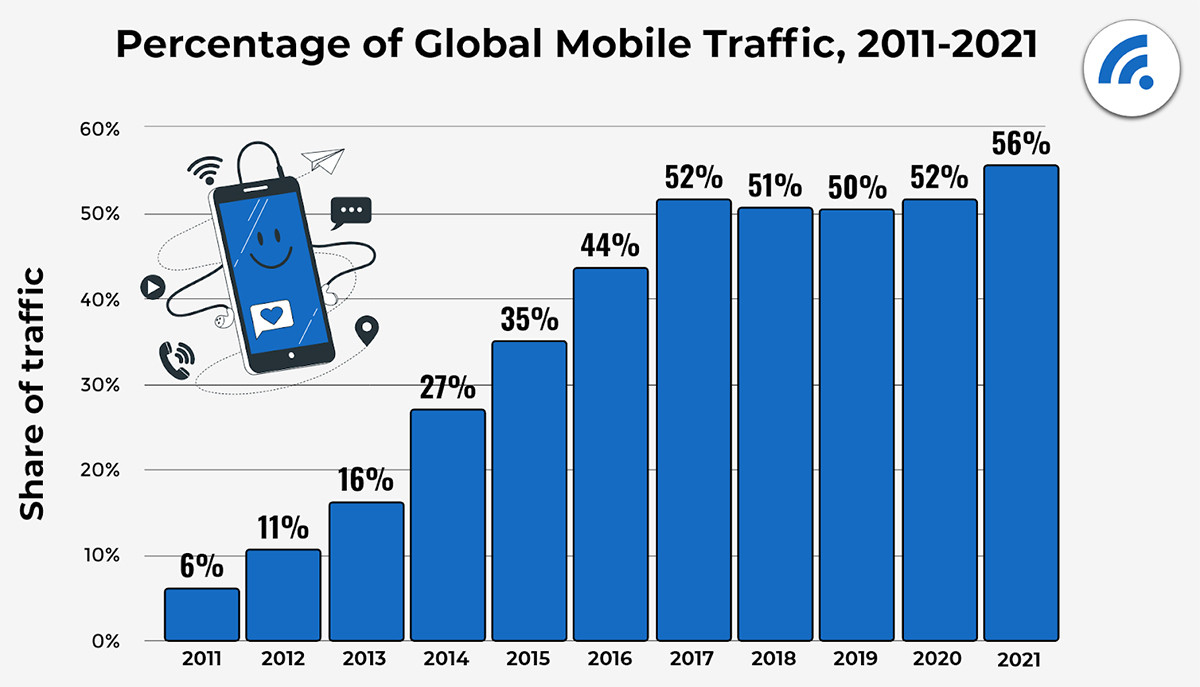What Exactly are Google's Ranking Factors?

Search Engine Optimization (SEO) is a constantly-evolving field: Google and other search engines regularly make changes to their ranking algorithms in order to better-serve their users, and businesses and firms that rely on their ranking for leads and sales must keep up in order to stay at the top of those rankings.
Every time you make a search, Google uses around 200 ranking factors to determine what pages to list and how to rank them on the search engine results page (SERP). If you want your business to stay at or near the top of a given SERP, you need to take those ranking factors into consideration as you build and optimize your site.
Of course, not every ranking factor is created equal. There are five main ranking factors that Google considers when ranking pages on their search engine results. These five factors are the most important to optimize in order to appear as close to the top of the SERP as possible.
Content Relevance Factors
In SEO-land, content is king: it doesn't matter how link-optimized or well-built your website is if it doesn't have the content people are looking for. The content on your site is far and away the most important part of a good user experience and a high search ranking. Content must provide real value to the user, and ideally should feature engaging visuals to complement the written word.

Google uses a rating program they call E-E-A-T to determine the quality of a given piece of content. Basically, E-E-A-T is a tool to rate how trustworthy a given page is about its subject through examining the author's expertise in the area; their personal experience with the tool, product, or service; and how much of an authority the page's author or site is on the given subject. All of these together contribute heavily to the page's search quality, on which Google has published a comprehensive set of guidelines.
Keywords in Page Titles
One aspect of page content that is easy to miss is the page's title. Every page on the internet has a page title, encoded in the page's source between its "title" tags. Your page's title is the first thing a searcher will see when your page is on the SERP, so it's clear how important it is for signaling page intent and relevance.
Google also uses a page's title to determine how relevant it might be for a given search query, so make sure to include your main ranking keywords in each page's title tag as you author your site.
Consistently Publish Engaging Content
Starting in 2010, Google rolled out the Google Freshness Algorithm, which helps ensure that users find the most up-to-date information possible about their query. If you're a big publisher with a lot of old content, simply updating that content can do a lot to help its rank.
If your pages are already relatively new, however, you'll need to continue publishing engaging content consistently. Things change fast in modern life, and even faster on the internet; continuously publishing new content on your site will help keep your SERP rank high, plus it'll help you stay up-to-date on the latest best practices and industry news!
User Experience Factors
Of course, even the best content in the world is useless if the site it's on is unusable. That's why optimizing your site's user experience is one of the most important tasks for any SEO firm to undertake.
When we optimize your site's user experience, we look at a number of factors. However, two in particular have an out-sized effect on rankings:
- Mobile-friendliness: Studies show that over 4.2 billion internet users are mobile, meaning that responsive design and mobile-friendly websites are more important than ever. Google started prioritizing mobile search over desktop in 2019, so if your website doesn't look good on a phone, it's going to get down-ranked in results.
- Page speed: The mobile-first indexing approach also makes your site's page speed more important. Websites that are slow to load and slow to display information to the user are ranked lower in search results. Luckily, there are a number of strategies we can implement to make your site more performant.

How Does Google Measure On-page Experience?
Of course, no one has the time to talk to every person who browses your website to ask them how they felt about their experience. Google has developed a set of metrics to measure a user's experience based on their behavior on a particular site. Those ranking signals include:
- Click through rate (CTR): The percentage of users who clicked on your site out of the list of search results. CTR can be improved with better titles and meta descriptions, both of which let the user know what they can expect on your page.
- Bounce rate: The percentage of users who click through to your site and immediately "bounce back" out through their browser's back button should be low. A high bounce rate can mean that a page isn't relevant to users' search queries, causing Google to drop its rank.
- Dwell time: How long a visitor stays on your site after coming from Google's search results page. Users that dwell for a long time on a page are generally highly engaged with that content, so Google ranks pages with high dwell time more highly than others.
There are many more factors to Google's ranking of on-page experience, and their algorithms change all the time. That's why it's vital to either keep up with the latest in SEO trends yourself, or hire a firm with the experience and know-how to keep up with it for you.
Authority Factors
Your site should also be authoritative in order to rank highly in SERPs. One of the main ways Google and other search engines determine authority is through examining a site's backlinks, or links that point back to a site from somewhere else online.
Domain authority is a metric that grades your site's expertise on a particular topic based on the number of high-quality backlinks your site has, as well as some other factors. Backlinks can also factor in a site's trustworthiness rating, as trustworthy sites tend to link to, and be linked from, other trustworthy sites.
Technical SEO Factors
There are a number of more technical, behind-the-scenes changes you can make that will help a page on your website rank higher. These include:
- Inner pages rank more highly than home pages. These include product pages, contact pages, blog posts, and other landing pages that aren't at the root of your domain.
- Entity keywords are a somewhat complex topic but vital to understand for modern SEO. An entity is a unique idea that can be referenced by a number of different keyword clusters; what this means for SEO is that Google can understand Indianapolis lawyer as equivalent to attorney in Indianapolis. This means that your content should include as many variations on its main idea as possible, and those variations won't count as keyword-stuffing.
- Including publish dates on your content can tell Google that it's recent, helping it rank higher. It's also a great signal to search engines that a page has been recently updated or revised!
Google's Ranking Factors are Constantly Evolving
Of course, we've only been able to scratch the surface in this blog about how Google ranks and understands websites on its search results. There are over 200 individual ranking factors that go into every search query executed on Google!
From our extensive research, Click Here Digital has determined the most important factors in search engine optimization in 2023 as the following:
- High page relevance
- Consistent publication
- Domain authority
- Up-to-date content
- User interface / User experience
- Page speed
- Keyword usage, including entity keywords
Click Here Digital has been tracking the changes with SEO since the dawn of the internet in 1993. We've seen every iteration of online search, and we have some ideas as to where it's headed next. This hard-won expertise in SEO uniquely positions us to help your company rise to the top of search engine rankings, increasing your engagement, leads, and ultimately, your bottom line. Contact us to set up a demonstration of our tech today.

Contact us today and watch your business grow.
Ready to take your marketing strategy to a new level?
We'd love to hear from you.
